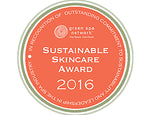
Herbal, Ayurvedic, Organic: What’s Best for You?

Highlights
Your skin represents the inner health of your body and your mind. With a growing emphasis on healthy living and sustainability people have started adopting synthetic-free and eco-friendly products in their routine. To sustain this lifestyle, three popular skin care routines are Ayurvedic, Herbal, and Organic. They follow a strict regimen for the use of synthetic-free products and an eco-friendly approach in their sourcing of these ingredients. Explore their key features to understand the right approach for you.
What Is Ayurvedic Skincare?
Ayurveda began in India more than 3000 years ago and focuses on the whole-body system of medicine by balancing the five elements—earth, water, fire, air, and ether—in the body. The three Doshas—Vata, Pitta, and Kapha influence both our physical and mental traits. Each Dosha governs different skin characteristics, and Ayurvedic skincare products are formulated to address imbalances within these Doshas with the use of natural ingredients like herbs, oils, and flowers.
Benefits Of Ayurvedic Skincare
-
Mind And Body Balance
Ayurvedic skincare promotes overall healthy growth of mind and body. It is based on creating an internal balance that, in turn, leads to healthy skin. Ayurvedic skincare is a regimen focused on balancing your primary Dosha. So, while using Ayurvedic products one must follow other lifestyle changes like sleep, diet, and exercise to get the best results.
-
Tailored To Skin Types
The three Doshas help to cater to specific skin needs; each Dosha adheres to a specific skin condition, a vital difference between herbal and ayurvedic remedies. Vata skin products like moisturizers or hydrating oil focus on dry skin. Pitta skin is normal skin and requires gentle exfoliation to keep it safe from moles and freckles. Lastly, oily skin is caused by Kapha Dosha, a warm oil massage that keeps the skin hydrating and oil-free.
What Is Herbal Skincare?
Herbal skincare products are made from natural ingredients and do not contain any harmful synthetic chemicals that can be toxic to the skin. Herbal skincare uses every part of plants, like leaves, roots, and stems, by utilizing their medicinal and cosmetic properties. The lack of side effects is a key feature of herbal skincare products.
Benefits Of Herbal Skincare
-
Non-Toxin
Since herbal medicines are free from synthetic chemicals, the chances of allergic reactions are lesser. Ingredients like chamomile and Aloevera are sulfate and parabens and help reduce inflammation and offer smooth skin.
-
Eco-Friendly
Ingredients for these medicines are not only picked from natural resources but also are animal cruelty-free. These cosmetics are not tested on animals as they are compatible with humans and every skin type.
What is Organic Skincare?
Organic cosmetics are made of ingredients grown without the use of any synthetic chemicals. No insecticides or chemical pesticides are used in the farming of these products. The major difference between herbal and organic skincare is that herbal skincare products are naturally grown. In contrast, organic products adhere to strict farming and manufacturing guidelines to reduce the use of chemicals and damage to the environment.
Benefits Of Organic Skincare
-
Better For Sensitive Skin
Unlike conventional skincare, organic products avoid the use of parabens, sulphates, and other chemicals that can potentially harm the skin and the environment. With the lack of harsh chemicals, organic products are safe for every skin type.
-
Ethically Produced
In addition to providing us with ingredients free of synthetics, organic farming helps soil retain its nutritious value by using fewer chemicals. Additionally, it will conserve water and improve the region's biodiversity. The distinction between herbal and organic component sources significantly impacts their relationship with nature.
Difference Between Herbal, Organic & Ayurvedic
All three processes offer natural and synthetic-free cosmetics for the betterment of your skin. When pointing out the variation in these processes, the key difference between herbal and ayurvedic skincare is the holistic, mind-and-body approach of ancient ayurveda to plant-based skincare cosmetics. Similar to this, the difference between herbal and organic is based on their approach towards nature. Organic farming not only gives 100 per cent synthetic-free products but also helps in environmental preservation, while herbal cosmetics are focused on sourcing the medicinal value of plant-based ingredients.
Which Skincare Approach is Right for You?
If you are looking for a complete change in lifestyle that not only cures your skin ailments but takes you on a philosophical journey rooted in ancient Vedas, then Ayurvedic skincare is the ideal path for you. On the other hand, herbal skincare offers you a plant-based cosmetic route that will soothe and heal your body without any allergic reactions. Finally, organic skincare is the way to go if you want complete assurance that your skincare regimen will not include any synthetic ingredients. Choose the option that best meets your needs.
Conclusion
Understanding tAsthahe differences between organic, herbal, and ayurvedic skincare is crucial in making the right decision for you. Whether you require a holistic approach, plan-based simplicity, or organic purity depends entirely on your lifestyle and preferences. As with any skincare decision, consider your skin type, your needs, and your personal beliefs to make the right call. Embrace the power of holistic wellness with Shankara's India unique skincare line, where ancient Ayurvedic wisdom meets cutting-edge modern science. Our products are designed to nurture your physical, mental, and emotional well-being while promoting sustainability. Order now to celebrate harmony in diversity and honour the essence of life with skincare that mindfully addresses issues like dryness, dullness, and ageing.














































































